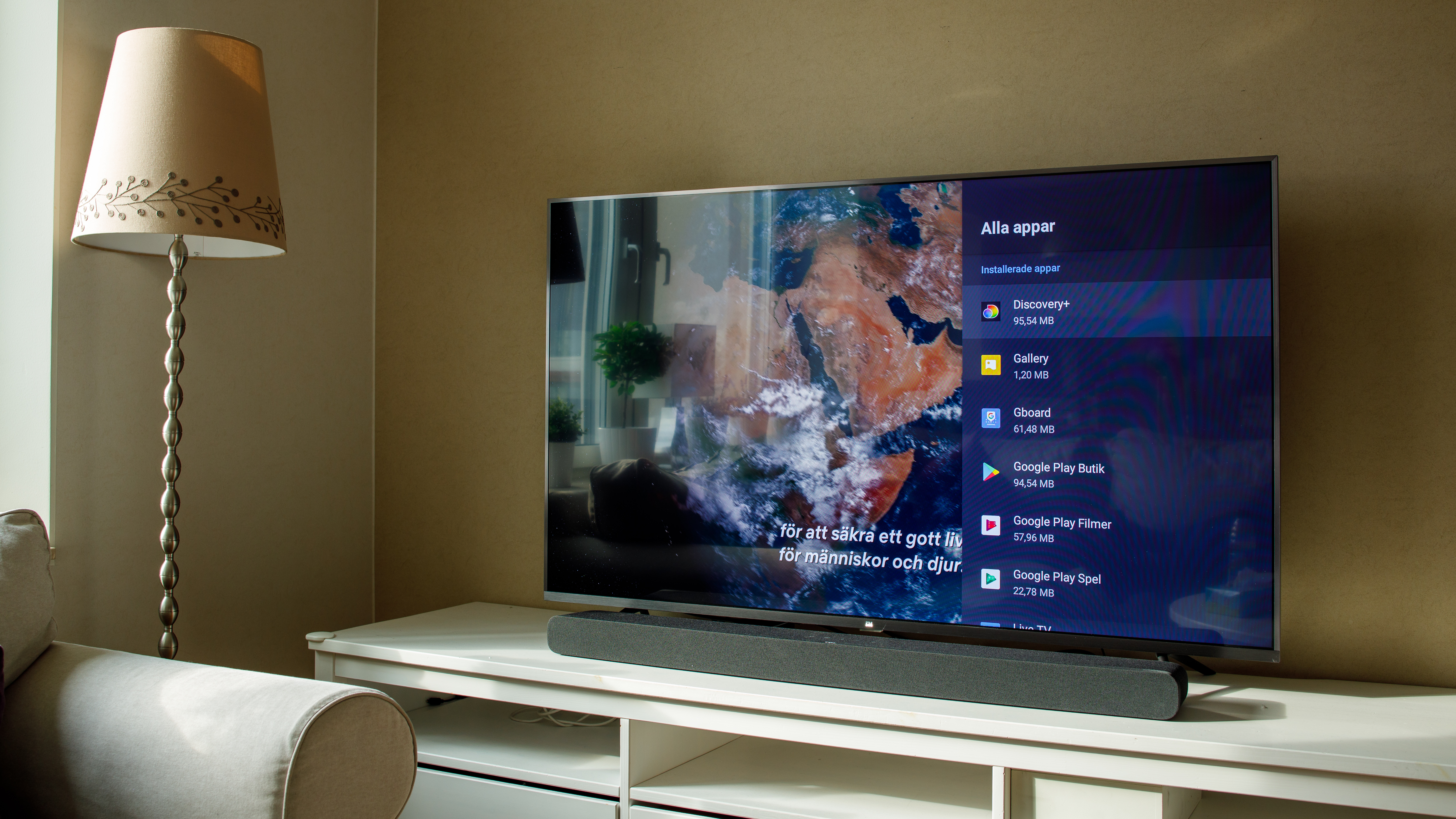
The big TV news emerging from Google I/O 2024 is that Android 14's TV operating system update is finally coming to Android TVs.
Android TV is used by some of the best 4K projectors for streaming from apps and performing other smart TV functions. It has a more stripped down appearance and feature set than the Google TV smart TV interface, which itself runs on the Android TV platform (check out our Google TV vs Android TV explainer for details on the differences between the two).
Previously available in a beta version for developers, Android TV 14 reportedly introduced new features including a remote shortcut button, new notifications, energy saving modes, and easier headphone pairing. Some of those features have now been confirmed with the official Android TV 14 launch, specifically energy modes, along with new accessibility features.
New energy modes
According to information provided by Google at Google I/O, the new energy modes “put users in control, helping to reduce a TV's standby power consumption”. These include a Low energy mode that turns off the network connection when the TV or projector is not in use; an Optimized energy mode that allows the TV to be awakened by an action such as casting from a device on the same Wi-Fi network; and an Increased energy mode that provides a more robust network feature set and appears to be aimed at users of the Google Home smart home platform.
Accessibility features
On the accessibility front, the new features in Android TV 14 include color correction, enhanced text options, and improved navigation. Importantly, these features can all be enabled or switched off using shortcut buttons on the remote control – a capability hinted at in the Android 14 beta release.
Performance and picture-in-picture
The Google I/O announcements for Android TV also promise a “snappier, more responsive TV experience”. That’s a welcome development given that the Android TV platform has often been criticized for its sluggish performance.
Qualified TVs running Android TV 14 will also now support picture-in-picture mode, allowing app developers to work with that feature.
Android TV: ready for redemption?
Aside from providing streaming capability on projectors, Android TV has become associated with cheap off-brand streaming devices, some of which are susceptible to malware and botnet attacks. The Google TV platform doesn’t appear to have the same vulnerability, which could be the reason why projector makers such as Hisense have adopted Google TV for streaming and smart features.
Although the new Android TV 14 features announced at Google I/O seem to be incremental rather than earth-shaking, energy saving and accessibility are areas that have seen steady improvements on the best TVs over the past few years. Many new sets offer “Eco” modes and sensors that automatically adjust picture brightness based on room lighting conditions. Samsung in particular has made strides in accessibility, providing picture modes that present a high-contrast version of images tailored to the needs of visually impaired viewers.
The last time Android TV got upgraded was in 2022, so we look forward to exploring the new Android TV 14 features. At a minimum, the performance boost will be a welcome addition as they should make navigating menus easier on TVs and projectors alike.







